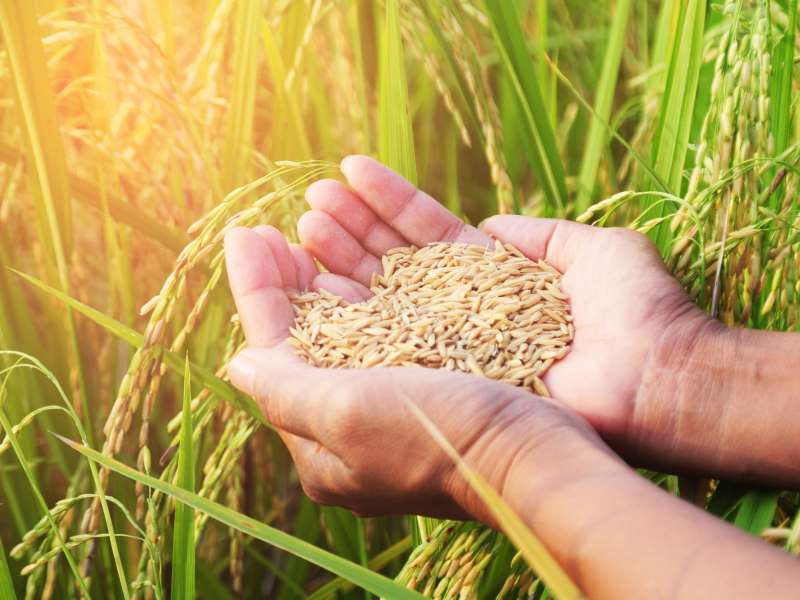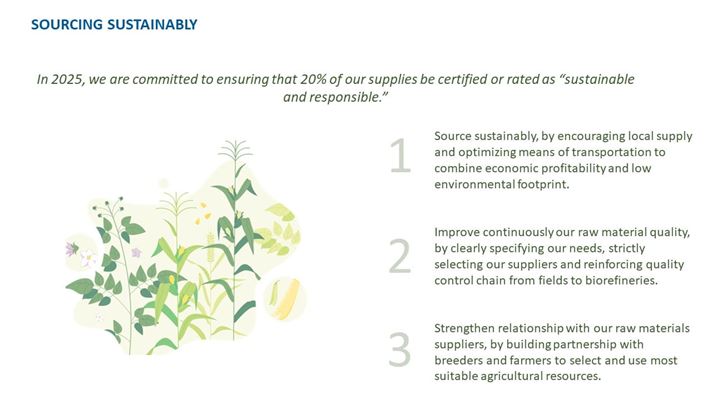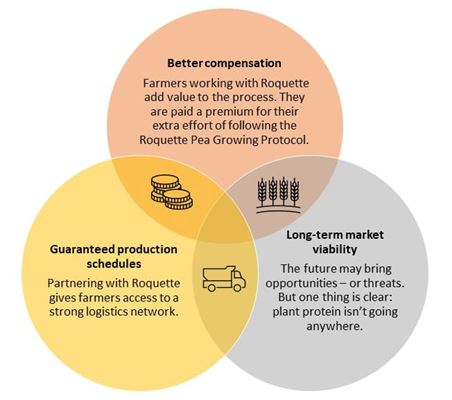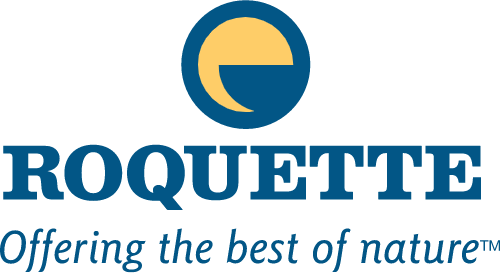

How Much Can We Benefit from Working on a Common Sustainable Agricultural Approach?
With the world's population growing rapidly, so does the demand for food, which creates the conditions for intensive agriculture. Often, reckless agricultural practices damage ecosystems and unduly exploit natural resources. As a result, it is now more important than ever for all actors in the food chain to find more sustainable solutions that reduce the negative impacts on biodiversity, the overexploitation of land and environmental resources, to ensure that they are sufficient for future generations.
Roquette, with almost 90 years of industrial and operational experience in different countries of the world, builds forward-looking practices that contribute to a more sustainable food chain and thriving local rural economies. This includes local raw material procurement, sustainable farming practices (Roquette protocols and certifications) as well as strong relationships with farmers. Such solutions significantly contribute to our role as a leading producer of plant-derived ingredients and a pioneer of plant proteins worldwide.
Opportunities that contribute to a change of a better human dietary health consisting of sustainably produced food
According to a study of ChathamHouse, an international affairs’ think tank, global nutrition trends should converge towards plant-based diets in order to reduce the environmental impact of livestock farms and at the same time contribute to a change for better human dietary health.
With more and more people changing diets to improve for better health, consumers are choosing plant-protein foods (peas, beans, chickpeas, lentils). In support of this worldwide trend, substituting certain inputs or practices with more sustainable alternatives, demand for these products will only increase. Thus, growing more plant-based protein raw materials means getting two opportunities at once – in support of biodiversity improving soil conditions, while at the same time responding to the EU Protein Plan strategy.
A new course in healthier nutrition is becoming more relevant and promising every day. European Union funds and programs, such as the Green Deal, Sustainable Nutrition, From Field to Fork and others, support and encourage this trend.
The Farm to Fork Strategy is at the heart of the European Green Deal, and it aims at ensuring a sustainable, safe food chain derived from an environmentally friendly food system. Roquette supports the Green Deal program that will open new opportunities to those who are in favor of creating a technological ecosystem for agriculture with less consumption of pesticides, fertilizers, stabilizers and other chemicals.
Benefits provided by responsible sourcing
Roquette is also committed to developing responsible sourcing practices. When buying corn, wheat, potatoes and peas, we proactively work with our agro-chain partners and encourage the best farming practices. When sourcing in the EU, we benefit from some of the best quality raw material in the world, due to the EU CAP’s (Common Agricultural Policy) cross-compliance and environment-friendly measures. Sourcing policies must also guarantee food safety, prevent food shortages and stimulate farmers’ profitability. Reduction of using pesticides with the final aim of limiting their use to strict necessity when chemical treatment is inevitable for plant and grain disease control is of course welcomed. This involves precision agriculture; alternative solutions will have to be developed and promoted (seeds with or without NGTs, biocontrol, agronomical practices, etc.). Innovative solutions may also bring other environmental benefits: for instance, lower water consumption or additional nutritional benefits.
To reinforce our sourcing commitment, Roquette has applied for membership with the SAI Platform (Sustainable Agriculture Initiative Platform), the primary global food and beverage value chain initiative whose aim is to promote sustainable agriculture among farmers. “At Roquette, we are proud to start working with SAI Platform members. We had recently fixed an objective to have 20% of our raw material supply certified or rated as sustainable by 2025, and we have already beaten that target in 2020, when we achieved a 37% score. As we continue setting more ambitious goals, we are very interested in improving our knowledge about responsible sourcing through the SAI Platform. Roquette looks forward to sharing experience with such a professional network and further developing our sustainable approach,” said Massimilano Benso, Head of Global Supply Chain.

Finding more sustainable ways to feed the planet
Food means togetherness: think of all those families at the dinner table. This also applies to industries and farmers collaborating to find more sustainable ways to drive the consumption. Collaboration with our key stakeholders at our ingredients’ origin – the farmers who grow crops, e.g., peas – is an essential part of the process. Roquette’s work with farmers begins with a single set of guidelines, the Roquette Pea Growing Protocol. More than a list of rules, the Protocol is a process that ensures ongoing evaluation and improvement.
Here are three ways the Pea Growing Protocol yields benefits for farmers growing for Roquette.

Moreover, Roquette contributes not only to the farmers’ economic well-being but also to the bioeconomy of an entire country/area, since our industry brings added value to farmers, fertilizer manufacturers and transportation businesses, plays a mediating role in seaborne trade and impacts economic growth of various other industries that generate income to national GDP. Besides, local farmers get a competitive edge on the world market, thanks to the greater emphasis on the environmental pillar of sustainability.
What’s next? Roquette will increase its pea production capacity in 2021 with the opening of a new facility in Manitoba, Canada, and the expansion already done of our pea protein manufacturing capacities in France. Investments like these are long-term, and collaboration with us means farmers are developing expertise that will serve them well into the future.
Inclusivity to redesign the future
Contributing to more sustainable food systems includes three key pillars – economic, environmental and social. The given practices of Roquette show how closely they are related and the strong impact they make on the empowerment of rural communities. Without a doubt, now and in the future, adopting more sustainable agriculture practices will be paramount to reducing the agricultural footprint on climate and the environment in general.













